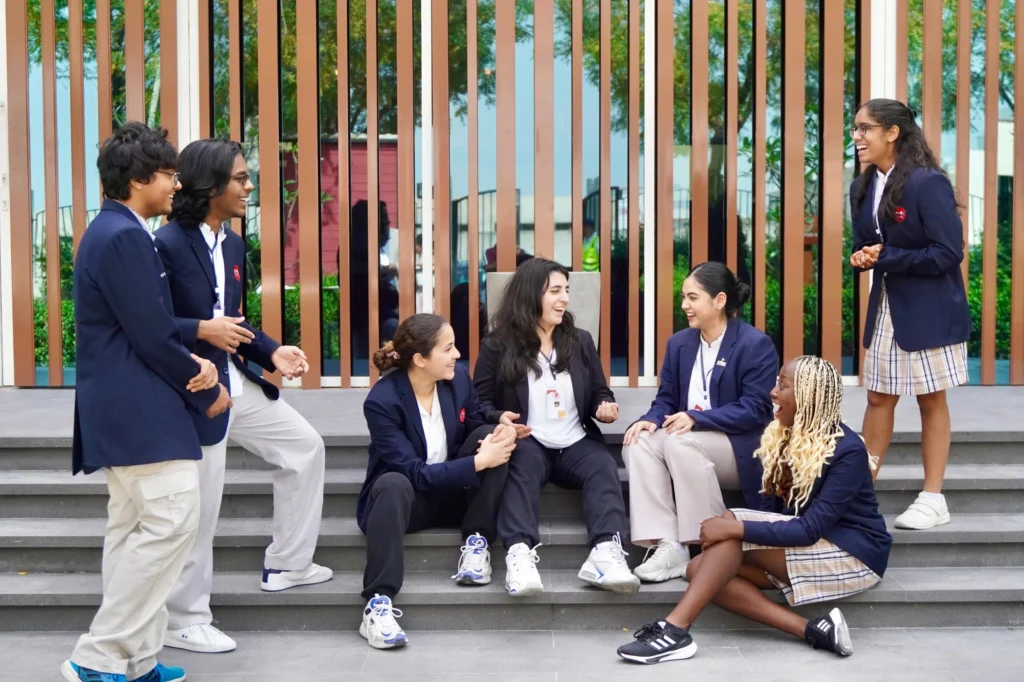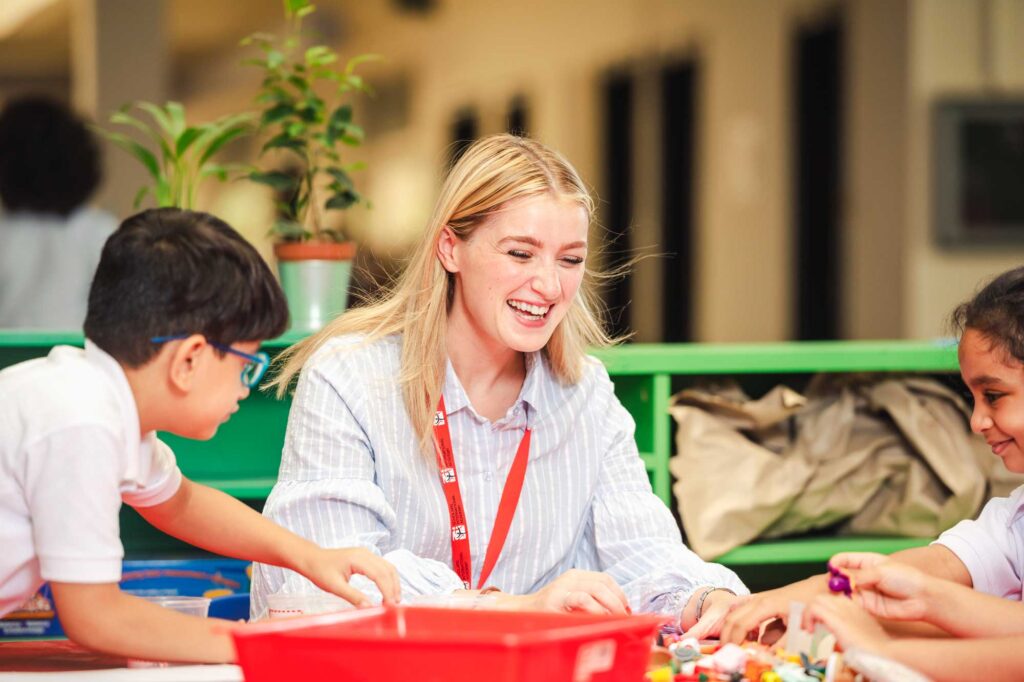High Quality
British Curriculum
Our Curriculum

The British National Curriculum also known as the National Curriculum for England provides a consistent approach to learning and a standardized set of expectations for the levels students are expected to achieve in each subject. Across a variety of courses, students acquire not just knowledge and understanding, but the skills they will need to succeed throughout their academic life and beyond. These include literacy, numeracy, critical thinking, communication, and problem-solving.
The Key benefits of the British Curriculum are:
A Globally Recognised System
The British Curriculum, established in 1988, is one of the most widely taught educational systems in the world. The education is learner-centered and well balanced, providing both breadth and depth of subject matter. Learners are assessed through regular benchmarking, which ensures they have mastered the content and are prepared for the International General Certificate of Secondary Education (IGCSE) and A level qualifications.
A Focus on Both Breadth and Depth
The British Curriculum structures learning in a way that guides learners through a variety of subjects including not only ‘core’ subjects such as Mathematics, Science, and English, but also the Arts, Humanities, and more. Starting in the early years, learners focus on the fundamentals of their subjects, and as learners progress, the curriculum dives deeper into these subjects, exploring not only the more nuanced and complex aspects of the subjects, but also how they relate to other areas of study.
A structured approach to learning to provide a Clear Understanding of Progress
Through the British Curriculum, learning is structured into distinct stages:
- Early Years Foundation Stage: (Ages 2-5 years)
- Key Stage 1: Years 1 and 2 (Primary)
- Key Stage 2: Years 3 to 6 (Primary)
- Key Stage 3: Years 7 to 9 (Secondary)
- Key Stage 4: Years 10 and 11 (Secondary)
- Key Stage 5: Years 12 and 13 (Post 16)

In the Foundation stage, children use games and play to develop an inquisitive approach to learning. Through supportive relationships with teachers, children learn language, literacy, mathematics, and positive social and emotional development.
In the Primary years, the curriculum remains as broad and balanced as possible, with a strong focus on child-centred learning. Teachers continually assess and adjust plans as they teach to meet the needs of their students.
As learners progress into the Secondary stages, the curriculum dives more deeply into each subject and aims to build a student’s ability to work independently and think critically. At this stage, the emphasis is on exposing students to opportunities in a wide range of areas so that they can begin to discover where their interests lie. Secondary students are assessed through the International General Certificate of Secondary Education (IGCSE).
In Post 16, students are able to narrow their subject areas, allowing them to excel in areas in which they have higher interest and ability. At the end of the program, students take A-level qualifications, which are highly valued by universities.
Each key stage has a set of subjects that students are expected to study, including:
- Mathematics
- English
- Science
- Design and Technology
- History
- Geography
- Art and Design
- Music
- Physical Education
- Computing
- Ancient and Modern Foreign languages
Additionally, Secondary students engage with subjects designed to enhance their development of personal, social, and health education skills as well as financial literacy and citizenship.
Growth Beyond the Classroom
The British Curriculum seeks to develop well-rounded individuals who will go on to lead healthy, balanced, and fulfilling lives. High priority is placed on extracurricular activities such as team sports and performing arts, which help learners develop skills in leadership and teamwork. Like other schools that follow the British Curriculum, SIA encourages learners to participate in activities that deepen their understanding of academic subjects, such as Model United Nations, debate, and STEAM activities like robotics or mathematics competitions.